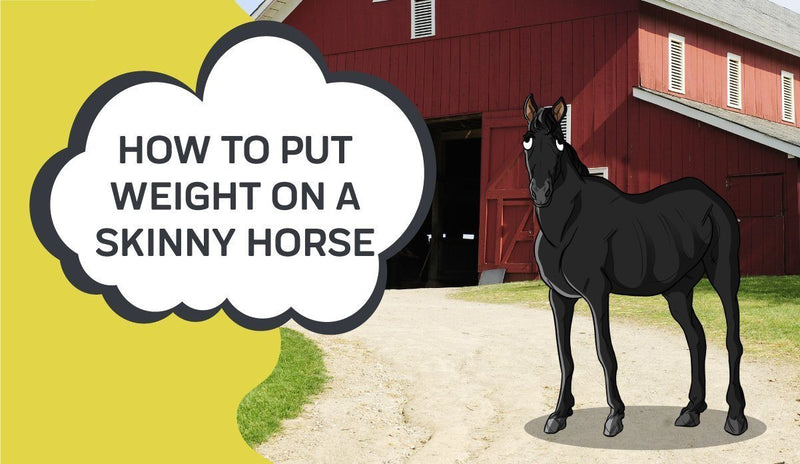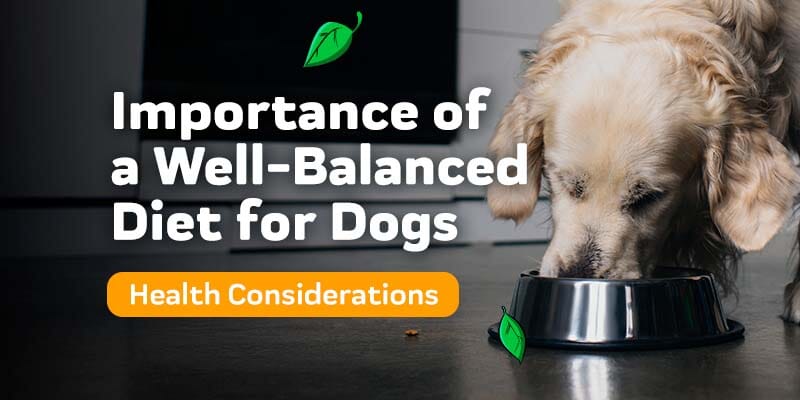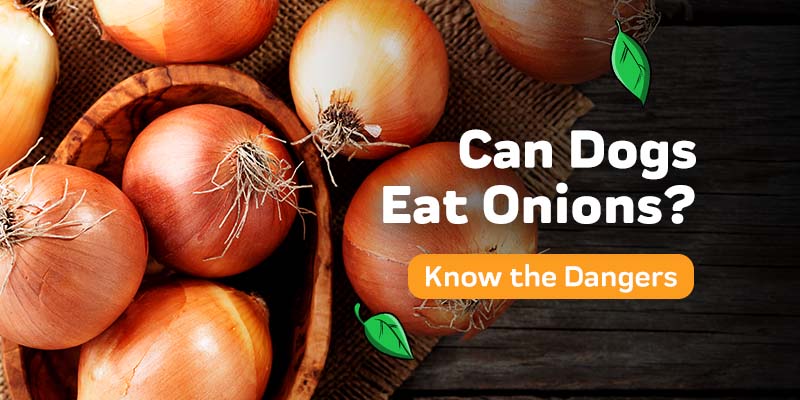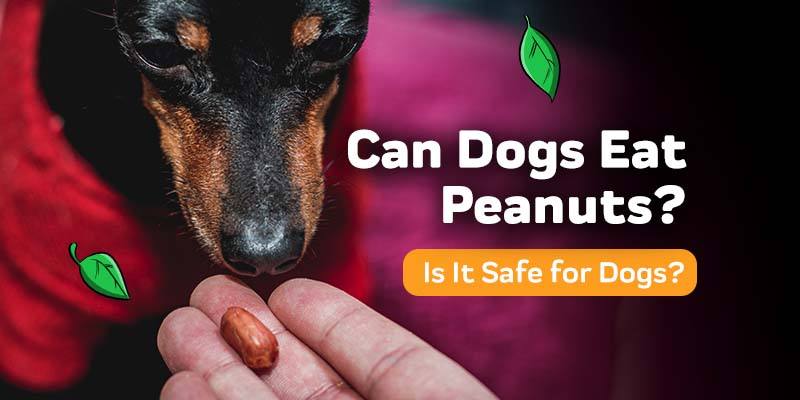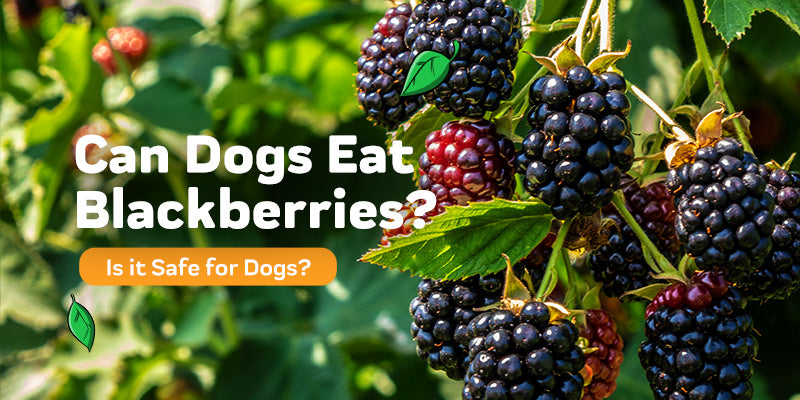
In farms all across the world, a lot of horses feed with each other in a barn at certain times every single day. This makes it easier for the horse owners and establishes a routine for the horses. They come to expect feed at a certain time every single day. However, sometimes there is a horse in the bunch that just isn't putting on weight. They are eating the same diet and it can be confusing as to why they are not gaining weight while the others are just fine and appear healthy in weight.
A lot of times, owners will get a vet out to check the horse for any medical issues. And in many cases, the vet can find no underlying condition that explains the lack of weight gain. This can be a real puzzle to solve for the horse owner. If there is no underlying medical condition, what could be making this horse skinny when they are eating like the rest of the horses?
The questions start running through the mind. What could I do to help this horse gain weight? There are some things that can be done to help a skinny horse put on weight and the reasons why it might be occurring.
Metabolism Of a Skinny Horse
A skinny horse may be skinny just because they have a fast metabolism. A fast metabolism means that they burn more calories at rest or while moving than other horses. This is just like some human beings have a fast metabolism and some do not. Horses that have a fast metabolism need more calories to sustain their bodies and their weights than those with a slower one. Some horse owners call skinny horses a “hard keeper”. They are called a hard keeper because they are harder to keep healthy than the average horse.
Hard keepers will definitely require more work than the average horse. This is because you will have to monitor their weight more closely and ensure that their diet is sufficient. A horse with a fast metabolism is going to need more calories and more protein and fat as well as carbohydrates.
Hard keepers are often the nervous sort. They like to move around a lot and are much more active than the standard horse. This makes it even harder to keep weight on them as they are burning a lot of calories from moving around a lot. Sometimes it just takes a denser feed or it will require a new type of feed that has higher fat content than average.
Feed That Can Help Skinny Horses Gain Weight
A skinny horse that needs to gain weight may need higher quality or denser type of feed. One of the most important elements of the feed in a skinny horse is fiber. Fiber is essential for the horse and is found in the grasses and hays that most horses eat. They need fiber for processing energy and calories in the body and for processing fatty acids.
There is a reason that fatty acids are called essential fatty acids. Fatty acids need to be consumed for optimal horse health. An equine that doesn't have fiber cannot properly process fatty acids. This is why fiber is so vital for their health and metabolically. It allows their body to process the calories efficiently and correctly.
Fresh grass is great for skinny horses as it contains more fiber and often higher quality. Many horses love to graze on grass and getting them to the freshest grass will help if they are too thin. It allows for more digestible fiber and is good for their bodies. Fresh grass grazing for skinny horses that need to put on weight could be helpful in adding some extra pounds.
Probiotics for horses may be helpful. They can help with digestion and in holding on to more calories. Equine probiotics are available from companies and they will allow for more digestion to occur and also help with the gut flora.
Gut flora has a direct impact on health and immunity. This has become apparent in recent years as scientific studies have come out and confirmed that gut flora and bacteria are more important than previously thought. The bacteria in the stomach being bad bacteria can cause a host of health issues and even make it harder to digest foods. Immunity can be affected if the gut flora is unbalanced or carrying bad bacteria. Probiotics are full of good bacteria that are great for stomach flora.
Also, ensuring that hay is high quality will be helpful. Hay that has fiber along with the other essential nutrients can make it easier for a skinny horse to start gaining a bit of weight.

Starch For Skinny Horses To Put on Weight

While hay and grass are essential to a horse for feed, starch from grains makes a great way to add calories to a horse's diet. Starch and grains contain carbohydrates and carbohydrates make it easier to put on weight. Grains contain starches and the calories are digested rather quickly. They can be used for the body to store energy and that energy is in the form of fat.
Digestibility is vital for skinny horses. Making sure that the starch and grains are in a high quality and digestible form is crucial. Oat feed seems to be the most easily digestible among all of the different starches that are in horse feed. Corn feed that is steamed helps with digestibility. Starch being added in a highly digestible form can definitely help a skinny horse gain weight.
There are other types of starch that can help horses. Barley and beet can be added for help in calorie and energy density. Starch in the form of grass can help as well.
Dental Care For Thin Horses
Dental care for thin horses may be more important than for the average horse. This is because they may not be eating enough due to tooth pain. Horses can have cavities and tooth issues just like humans can. Imagine trying to eat dense food if your teeth are in pain. The natural inclination is to eat soft food or avoid eating if there is none.
Dense feed or roughage will not be easy for a horse to eat. It could really be that the skinny horse is skinny because they simply can't eat. There are equine dentists out there that can help. A visit to the equine dentist should be in order. They will be able to perform an exam to check the dental health of the equine. It will be evident if there are cavities or other dental issues to the dentist.
A dental problem with the horse may require dental surgery or a filling. Horses can be prepped for this and given medication to calm them down for any dental procedures that are required. They may need to be fed a special diet after any dental procedures. Equine dentists can give recommendations and directions on what to do for aftercare and diet.
Horse Feed With Fat To Help a Skinny Horse
Horses that are skinny definitely need fat in their diet to put on weight. A low fat diet will not help them at all. Fat as a source for energy is crucial. It helps with energy and with body functions. The body actually needs fat to survive. Omega fatty acids are especially crucial for equine health. Fatty acids and foods that contain high fat is crucial to holding onto weight and in having energy.
Most horses prefer oils for fats. Corn oil is one of the most popular oils for horses as they seem to really love it. The taste is the number one reason to consider giving corn oil to your horse. A finicky eater that is too thin is hard to please. However, corn oil is likely something that they will enjoy eating and it will allow them to get the fat that they need for optimal body functioning. Interestingly, oils are more digestible for horses than animal fats Animal fats are not particularly good to most equines and they are not readily digestible. There is very little advantage of giving horses animal fats. In fact, it can cause loose stools and other issues within the gut. This is not something that a skinny horse needs.
Rice bran and sunflower seeds can be a good source of fat for equines. Rice bran is a great option as it contains both fiber and rice oil. This means it has both fat and fiber for better absorption and calorie intake. The horses seem to enjoy the taste and it is of high quality. It is important that it is stabilized property as it can go bad quickly.
Most horses have no trouble digesting fat. Gradual addition of fats is important to ensuring that their gastrointestinal tract can handle the digestion. Fat as an energy source can ensure that the body processes carbohydrates and sugars better as well. A horse that has issues digesting fat may need a highly digestible source of fat. Rice bran would be a good option for horses that have a hard time digesting fat. This is because there are fibers and oils inside for better digestion and it can help a horse that has runny stools and issues with fat digestion. Starting slow and testing the feed on the horse is the best option for equines that have a bad time digesting fat.
Feeding fiber, fat, and grains together may be a good option. This is because the horse can get a wide variety in their diets at one time and aid in good digestion. Giving them only one type of energy source at a meal can backfire. Having all of the elements together is smarter for calorie density, calorie count, and better digestion. There are feeds that have all of these elements in one. Otherwise, adding several options that contain these elements may be for the best. Also, finicky eaters may need a certain type of feed to eat and stay happy. Just like people, they have tastes for some things and not for others. Keep that in mind when preparing their meals. Skinny horses will require a lot more maintenance and care. However, it is worth it to see them become healthier and more energetic equine.
Adding Meals To Help Horses Gain Weight

Adding in extra meals to help horses gain weight is a beneficial tool to try. Some horses naturally eat smaller amounts or they have a finicky appetite. Taking the time to give them smaller meals throughout the day could pay off in added pounds. A good tip is to give them a solitary feeding or a feeding with several other horses. Getting in with the entire herd may make the equine anxious.
Also, setting aside a patch of grass for them to graze is a great idea. Fresh grass is excellent for equines to eat and is even more beneficial to thin horses. This enables horse trainers to take time to finish other tasks and give the horse some time to get outdoors and enjoy fresh grass for their calorie instake.
Extra meals can also be given whenever there is a chance. Trying to set them up at a specific time throughout the day is ideal. This is to set a routine and for the horse to begin to realize that a feed time is coming up. Making sure that the extra meals have high quality fats, starches, and other essential vitamins and minerals that are necessary.
Special Feed For Horses To Gain Weight
There are companies that make special feed for horses to gain weight. Skinny horses that need to put on weight may benefit from these. These are companies that specialize in horse feed and they make sure that their mixtures contain everything that the horses need. This method can be more expensive than other ways. However, it may necessary to help the horse gain weight properly. It may be convenient and not too expensive if it is just for one horse. It may be cost-prohibitive for owners that have a lot of horses and there are a few that need extra care for lack of weight gain. The benefits of this may outweigh the negatives, though.
Companies that sell high-quality food for horse weight gain are out there. It is imperative to do research on these companies and investigate the ingredients that they put inside the food. Making sure that the ingredients are quality and minimally processed is important to verify that your horse will be getting the very best. Paying the extra money is only worth it if the company is offering something of quality for the price. Companies with positive feedback from other horse owners that have seen their skinny horses gain weight may be just the right place to go. Seeing success from other horse owners and trainers in getting their skinny horse to put on weight is a bright light. Also, some companies offer discounted rates for buying in bulk. This may be wise if you plan on feeding the horse the product over a long period of time.

Natural Methods in Helping Skinny Horses Gain Weight
One of the best natural methods in helping a skinny horse gain weight is to give them CBD oil. Some horses are just not as hungry as the rest. Increasing their appetite can make a huge impact on whether they can gain weight. CBD oil has been shown in studies to increase appetite and help with stomach upset and nausea. It has zero side effects and zero psychoactive properties. Zero side effects is great for equine owners that don't want to have the added worry of having about side effects that come with a lot of medications. There is also no way that a horse will get psychoactive effects as it does not contain THC.

CBD Oil For Horses can be given to skinny horses to help them gain weight. The ability for CBD to increase appetite has appeared in countless studies. This could be a game changer for horses that just don't seem to have much of a desire to eat. It can also help them to eat more calories. Adding more calories from fat and starch can make it easier for the horse to get more body fat. There are CBD products made for horses specifically and that can make it easier to give them proper dosage. Horses are large animals and require more CBD than a smaller animal will need. You can add CBD oil to their feed, any treats, or give it to them as a sublingual. Sublingual dosage of CBD oil may be the best method for a horse to get it into their system properly and quickly. CBD can also help with many other health issues. It has been proven scientifically to help with anxiety, inflammation, pain, and much more. Equines that have any of these issues can have benefit from CBD as a natural and safe option. It is a wise choice for equine owners that want their horses to have health improvement through natural methods.
Sources:
Feeding for Weight GainUnderweight Horses
CBD OIL FOR HORSES
Approved by:
Dr. Ivana Vukasinovic
Doctor of Veterinary Medicine, University of Belgrade
 Ivana Vukasinovic grew up in Serbia and attended the University of Belgrade where she received a degree in Veterinary medicine in 2012 and later completed surgical residency working mostly with livestock. Her first year of practice was split between busy small animal practice and emergency clinic, and after two more years of treating many different species of animals, she opened her own veterinary pharmacy where an interest in canine and feline nutrition emerged with an accent on fighting animal obesity. In her free time, she acts as a foster parent for stray animals before their adoption, likes to read SF books and making salted caramel cookies.
Ivana Vukasinovic grew up in Serbia and attended the University of Belgrade where she received a degree in Veterinary medicine in 2012 and later completed surgical residency working mostly with livestock. Her first year of practice was split between busy small animal practice and emergency clinic, and after two more years of treating many different species of animals, she opened her own veterinary pharmacy where an interest in canine and feline nutrition emerged with an accent on fighting animal obesity. In her free time, she acts as a foster parent for stray animals before their adoption, likes to read SF books and making salted caramel cookies.
Thanks for stopping by!
P.S. We Love You!
Sincerely,
The Innovet Team
Please do not ask for emergency or specific medical questions about your pets in the comments. Innovet Pet Products is unable to provide you with specific medical advice or counseling. A detailed physical exam, patient history, and an established veterinarian are required to provide specific medical advice. If you are worried that your pet requires emergency attention or if you have specific medical questions related to your pet’s current or chronic health conditions, please contact or visit your local/preferred veterinarian, an animal-specific poison control hotline, or your local emergency veterinary care center.
Please share your experiences and stories, your opinions and feedback about this blog, or what you've learned that you'd like to share with others.










